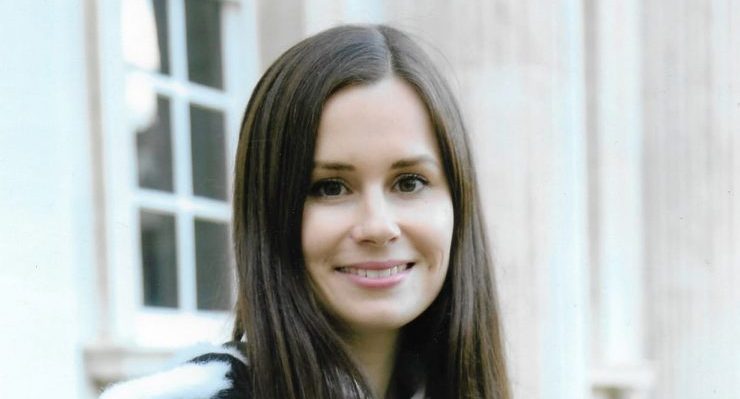
Australia needs to do more than engage in “quiet diplomacy” to secure Melbourne University academic Dr Kylie Moore-Gilbert’s release from Iran’s notorious Evin Prison, journalist Peter Greste has told Crikey.
Greste and his colleagues at Al Jazeera were famously sentenced to several years’ jail in Egypt in 2013 for news reporting that was “damaging national security”. Greste was deported to Australia in February 2015 following public outcry and diplomatic negotiations. His colleagues were released on a presidential pardon after almost nine months of campaigning later.
“What we learnt in our case was that sometimes it takes a more vocal campaign to achieve results. That doesn’t necessarily mean DFAT needs to get more shouty on Twitter, but that they should probably be a bit more vocal in speaking about the injustice of this case,” Greste said.
Moore-Gilbert was arrested at Tehran airport in September 2018 and charged with “espionage”, after attending an academic conference where a fellow academic flagged her as “suspicious” to Iran’s Revolutionary Guard Corps. Last year, she was sentenced to a decade in prison, after being tried and convicted in secret.
She has twice written to Prime Minister Scott Morrison, saying she has undertaken five hunger strikes “to no avail” and begging from him to “take immediate action” against her 10-year prison sentence.
A spokesperson for the Department of Foreign Affairs (DFAT) told Crikey that diplomatic officials most recently visited Moore-Gilbert in prison on January 16, and would not be able to provide further comment on her situation due to privacy obligations.
Letters from Moore-Gilbert reveal she is being kept in Ward 2-A of Evin Prison, which is controlled by the Revolutionary Guard Corps. Centre for Human Rights Iran Executive Director Hadi Ghaemi wrote on Tuesday that intelligence agents in this ward are “free to subject prisoners to the most unlawful and inhumane conditions with impunity”.
She’s also sensationally revealed that she’s rejected offers from the Revolutionary Guard Corps to become a spy for Iran in exchange for her freedom.
Moore-Gilbert alleges she has been denied phone calls and visitations, had most of her English books from the Australian ambassador confiscated, is allergic to most of the food provided, and has been hospitalised several times for her deteriorating physical and psychological health.
Last October, the Australian government secured the release of a travel-blogging couple who allegedly flew a drone over an Iranian military precinct without a permit. Their release was part of an apparent prisoner-swap deal involving an Iranian student detained in Brisbane on conspiracy charges.
The Australian Minister for Foreign Affairs Marise Payne previously told The Guardian that the Australian government does not “accept the charges upon which [Moore-Gilbert] was detained, held, charged and convicted …” and was working “every day with our agencies here and with counterpart in Iran to … secure [her] release”.
“Kylie’s colleagues need to be more vocal about organising public support: explaining to Australians who she is and what she stands for, make people understand the value of her work as an academic and the way that this targets the principles behind free speech, which is basically what happened in my case,” Greste told Crikey.
While his Al Jazeera colleagues remained in prison, Greste said an Australian diplomat told him to keep up the social media campaign because it gave diplomats a point of leverage with their Egyptian counterparts.
Shahram Akbarzadeh, a research professor of Middle East and Central Asian Politics at Deakin University, said evidence against an accused was not made public or necessarily shared with the accused’s defence team in espionage cases in Iran, making it a difficult charge to fight.
“It is also a very political charge. It is hard for Iranian lawyers to fight that case in the courts because in the eye of the authorities, and the many media outlets that support the hardliner view, those lawyers will be seen as accomplices.”
Moore-Gilbert’s most recent research examined political protests and activism in Bahrain, and Iran’s links with Bahrain’s Shia community.
While Akbarzadeh stressed this was a “very legitimate area of research”, he added that “in the eyes of the Iranian authorities, this topic may be seen as advancing a sinister agenda to ‘blacken Iran’s image and feed the Western propaganda about Iran’s expansionism'”.
“The [Australian government] can remind the Iranian authorities that the pursuit of knowledge is also an important Islamic tradition. There is a saying that Muslims should seek knowledge even if it means travelling the land all the way to China.
“The Iranian leadership [also] needs to hear the personal story of Moore-Gilbert, her life story … It might sound counter-intuitive, but the Iranian authorities are very sensitive to their public image.”
The Australian government raised its Smartraveller travel advice for Iran to “reconsider your need to travel” in November 2018, shortly after Moore-Gilbert would have been arrested.
DFAT confirmed to Crikey that they also wrote to universities and institutions in December 2018, flagging the changes to academic staff.








‘Australia needs to do more than engage in “quiet diplomacy” to secure Melbourne University academic Dr Kylie Moore-Gilbert’s release from Iran’s notorious Evin Prison, journalist Peter Greste has told Crikey.‘ Yes it does. And while he’s advising on that perhaps Mr Greste, whose release from jail in Egypt we rejoiced at, could advise on how to secure Australian editor Julian Assange’s release from England’s notorious Belmarsh prison. And if not, why not?
Thank you applet and Rais. Quite my own thinking as regards Mr Greste.
“Shahram Akbarzadeh, a research professor of Middle East and Central Asian Politics at Deakin University, said evidence against an accused was not made public or necessarily shared with the accused’s defence team in espionage cases in Iran, making it a difficult charge to fight. “It is also a very political charge. It is hard for Iranian lawyers to fight that case in the courts because in the eye of the authorities, and the many media outlets that support the hardliner view, those lawyers will be seen as accomplices.””
Shocking and disgraceful. Australian citizens are fortunate that such a travesty of judicial procedure is unthinkable here… except our government is doing the same to Witness K. And his lawyer Bernard Collaery is not only seen as an accomplice, he is being prosecuted too. How good is Australia? How does our Minister for Foreign Affairs keep a straight face when, in effect, she is moaning about the Iranian government copying us?
Well said, SSR! What’s good for the goose, is also good for the gander…in this instance.
What on earth possessed Moore-Gilbert to go anywhere near Iran with her study focus. It was all bound to end in trouble. Sometimes I think that academics may be very clever, but they have zero common sense!
Using the hypocritic journalist Greste doesn’t help this plead.
Yes, remarkable similarities with the Witness K and Collaery case.
Whether we admit it or not academia is often not values free or unsuitable for political mileage. Greste’s case and release was as much about good timing and expediency as good advocacy. His cohorts remain in prison. Kylie’s timing isn’t good and there’s little expediency to offer Iran.